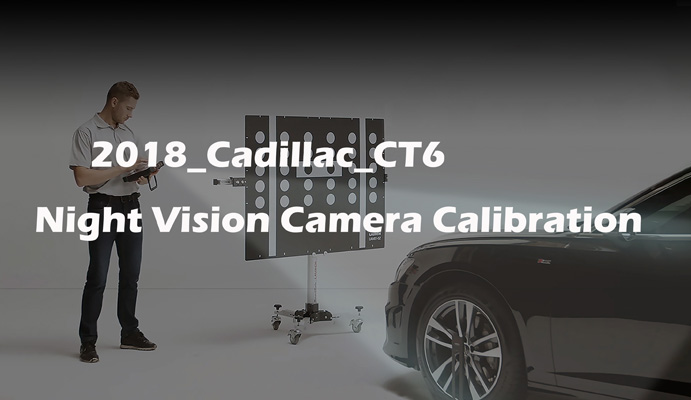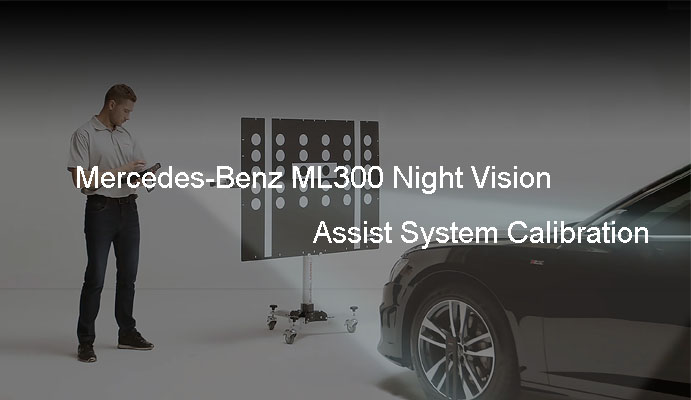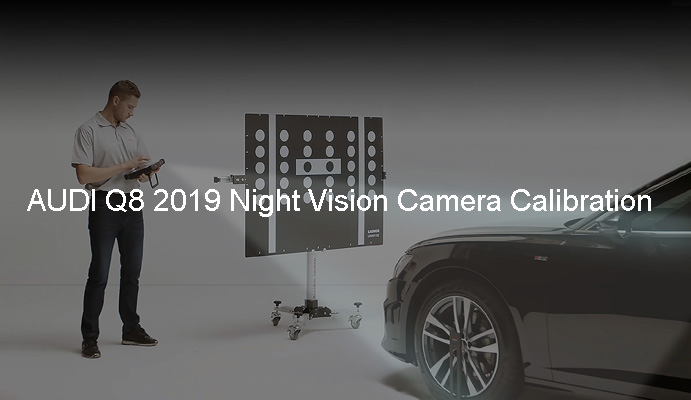Night vision calibration is the process of adjusting and optimizing the settings of a vehicle's night vision system to ensure its accuracy and performance. Night vision systems use infrared sensors and other technologies to enhance visibility in low-light conditions, allowing drivers to see the road and potential hazards more clearly when driving at night.
The importance of night vision calibration is to ensure that the night vision system can provide accurate and reliable visual enhancement under different driving conditions and environments. Here are some aspects of why night vision calibration is important:
① Accuracy and performance optimization: Night vision systems capture images under low-light conditions through technologies such as infrared sensors. Calibration ensures that the various components of the system are correctly adjusted for optimal image quality and accuracy, thereby improving the performance of your night vision system.
② Adapt to different environments: The diversity of driving conditions and environments requires the night vision system to be able to adapt to different lighting, temperature and road conditions. Calibration ensures that the system can perform well through these changes, providing consistent visual results.
③ Reduce the risk of false alarms: Uncalibrated night vision systems may produce false alarms, misidentifying harmless objects as potentially dangerous. Through calibration, the system can more accurately identify and display real obstacles, reducing the risk of false alarms.
④ Improve driver confidence: Accurate night vision systems make drivers more confident because they can clearly see obstacles, pedestrians or other vehicles that may be present when driving at night, improving overall driving safety.
⑤ Extend the life of the system: Regular calibration helps keep the night vision system in optimal operating condition, prolongs the life of the system and reduces failures caused by miscalibration.
⑥ Comply with safety standards: Night vision systems are a key safety feature designed to improve night driving safety in many areas.
Overall, night vision calibration is a key step to ensure that the night vision system operates reliably under various conditions, improving the driver's perception of nighttime road conditions, and thereby promoting driving safety.
Night vision calibration helps improve the safety of the car and the driver's driving experience. When the following situations occur, we may need to perform night vision calibration on the car:
① Install new system: If new night vision system is installed on the vehicle, or the system is updated or replaced, calibration is usually required to ensure that the new system can work correctly.
② Regular maintenance: The manufacturer may recommend regular maintenance and calibration of the night vision system at certain intervals. This helps ensure that the system maintains optimal performance.
③ System problems: If your night vision system has performance problems, such as blurred images, color distortion, or an increased rate of false alarms, this may be a sign that calibration is needed.
④ Environmental changes: When the driving environment changes, such as sudden changes in temperature, rain or snow, or changes in driving conditions, it may also need to be recalibrated to adapt to the new conditions.
⑤ Vehicle repairs: If vehicle repairs related to the night vision system are performed, such as replacing the front windshield, front body parts, or other components that may affect the night vision system, calibration is recommended.
⑥ System self-test prompt: Some vehicles are equipped with a self-test function for the night vision system. If the system detects a problem, it may prompt calibration or maintenance.
To ensure that night vision systems provide optimal performance in all conditions. If there are any issues or calibration is required, it is best to have it performed by a professional technician or dealer.
Calibrating a night vision system involves multiple processes and may vary depending on the manufacturer and specific vehicle model. For more information on night vision system calibration, click to view the following cases:
AUDI Q8 2019 Night Vision Camera Calibration
Mercedes-Benz ML300 Night Vision Assist System Calibration
2018_Cadillac_CT6 Night Vision Camera Calibration
With the continuous innovation and improvement of night vision calibration technology, in the future, night vision calibration technology may develop in the following directions:
① Advanced sensor technology: Future night vision systems may use more advanced sensor technology, such as more sensitive infrared cameras, lidar or other sensors to improve the clarity of night vision and long-range detection capabilities.
② Artificial intelligence and machine learning: The introduction of artificial intelligence and machine learning algorithms enables the night vision system to better identify and distinguish various objects on the road, including pedestrians, animals and other vehicles. This will make the system more intelligent and adaptable.
③ Real-time image processing: Develop faster and more efficient real-time image processing technology to achieve instant, high-quality processing of night vision images, reduce delays and increase the speed of feedback to the driver.
④ Multi-modal integration: Integrate night vision systems with other vehicle perception systems such as radar, cameras and ultrasonic sensors to provide more comprehensive environmental awareness and more accurate driver assistance functions.
⑤ Visualization improvements: Improved visualization of night vision images, including higher contrast, more vivid colors and a wider field of view to increase driver comfort and safety when driving at night.
⑥ Vehicle communication: Integrate the night vision system with the communication network between vehicles to achieve real-time information sharing between vehicles and improve collaboration and safety in complex traffic environments.
⑦ Energy efficiency: Optimize the energy efficiency of the night vision system and adopt more advanced low-power technology to reduce the impact on vehicle battery power consumption.
These innovations may make future night vision calibration technology more advanced, intelligent and adaptable, providing drivers with a safer and more comfortable night driving experience.
Return


